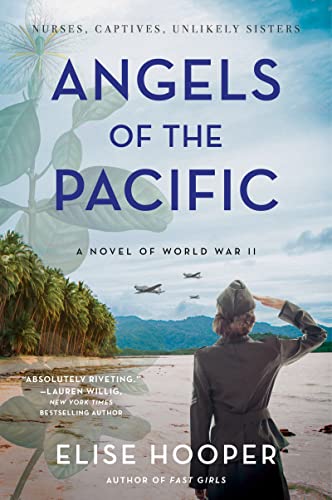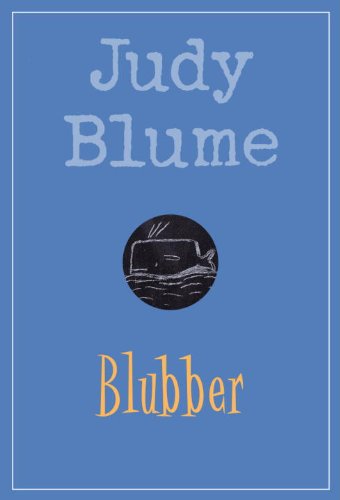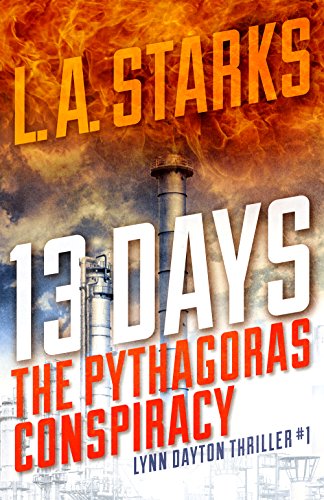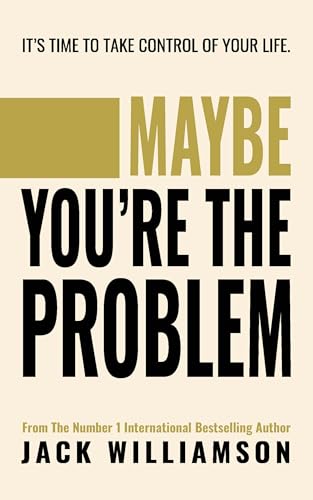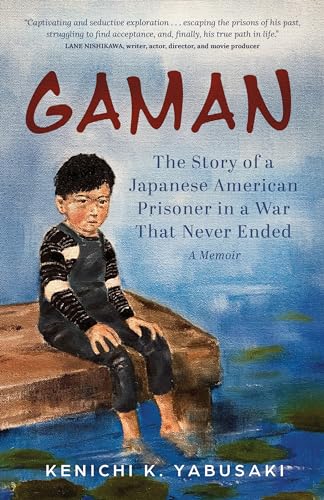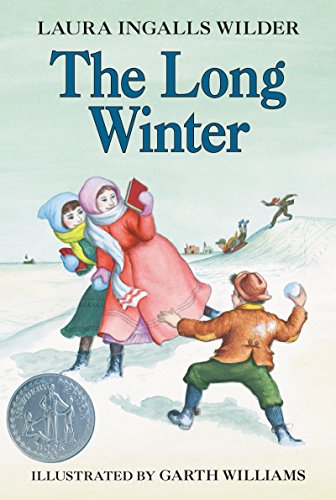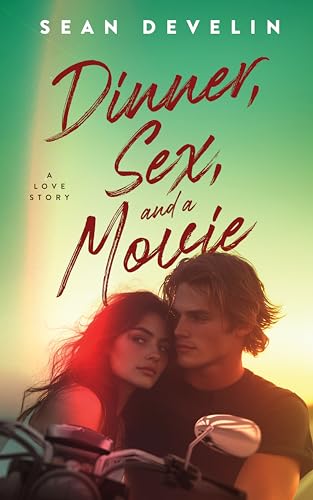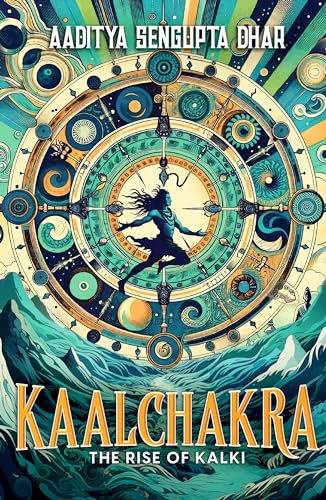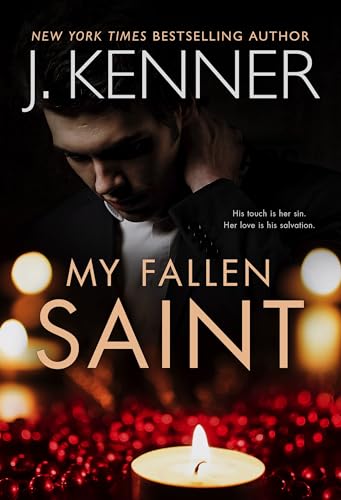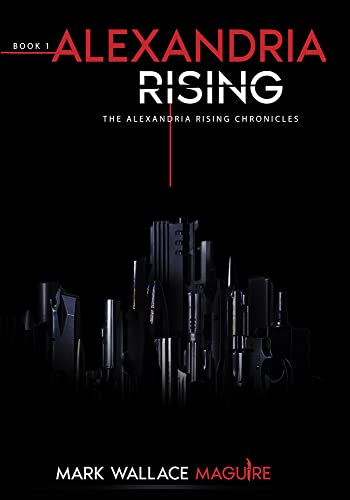Mother’s Day is just around the corner.
It’s only right that you should treat yourself — or someone you love — to a chance to laugh out loud in the best of company.
 Driving on the Wrong Side of the Road:
Driving on the Wrong Side of the Road:
Humorous Views On Love, Lust, & Lawncare
by Diana Estill
Home is where the heartiest laughs are, and nobody’s house and life offer up quite the same comedic cuisine as author, journalist and funny lady Diana Estill.
The Texas humorist believes that life’s foibles, failures and frustrations offer some of the best opportunities for laughter.
In today’s 4,900-word Free Kindle Nation Short from Driving on the Wrong Side of the Road, she invites readers to laugh along with her about the humor that really — honestly! — can be found in self checkout, rebate coupon rules, alternate cow-sourced energy, cars and, since she’s a Texan, pickup trucks.
With the vehicles parked in the vignettes below, she ponders the oft-mentioned “average household” and wraps up our treat with the word on the jalapeno.
Click here to begin reading the free excerpt
Here’s the set-up:
Often compared to the late, great humorist Erma Bombeck, Diana Estill confronts everyday life with her smile- and laugh-filled take on it all. Most of us live the silly moments without appreciating their humor. Estill shows us how to fix that.
Hilarious explanations for “why men grill”, “women want denim”, “your bedmate won’t stop snoring”, and other socially intriguing questions from the award-winning author of Deedee Divine’s Totally Skewed Guide to Life are contained in her book, Driving On The Wrong Side Of The Road, from which we get a free nuggets today.
“Personal slices of life served in the spirit of Erma Bombeck,” says ForeWord Clarion Reviews.
The tales in Driving on the Wrong Side of the Road will make you want to keep your partner, claim your kin, and hug your dog.
Clean humor suitable for anyone who likes (or needs) to laugh at life’s frustrations.
Most reviewers agree with the crew at Armchair Interviews, who said:
Driving on the Wrong Side of the Road by Diana Estill is a sparkling collection of humorous vignettes that range from the anecdotal to the philosophical–and almost everything in between.
Drawing mainly from her own experiences, from youth right through to Grandma-hood, and with her tongue lodged firmly in her cheek, Diana Estill provides guidance and advice on such wide-ranging topics as wedding anniversary gifts, handling jalapeno peppers, and football terminology for dummies. Interspersed with such ruminations are hilarious anecdotes such as the Christmas Monopoly game that did not become a ‘family tradition,’ and the testosterone-fuelled Texas Chain Saw Adventure.
Click here to begin reading the free excerpt

Driving on the Wrong Side of the Road: Humorous Views On Love, Lust, & Lawncare
List Price: $2.99
4.7 Stars – 13 Reviews
UK CUSTOMERS: Click on the title below to download
DRIVING ON THE WRONG SIDE OF THE ROAD
Two More for Kindle by Diana Estill
$0.99

by Diana Estill
$2.99
 Free Kindle Nation Shorts – April 24, 2011
Free Kindle Nation Shorts – April 24, 2011
An Excerpt from
Driving On The Wrong Side Of The Road
Humorous Views On Love,
Lust, & Lawncare
By Diana Estill
Copyright © 2011 by Diana Estill and published here with her permission
Self-Checkout Machines Must Go
Have you ever been held hostage by a self-checkout machine? I’m talking about one of those stupid mechanical contraptions that has replaced human grocery checkers so that we now have only ourselves to blame for crushed bread.
Normally, I would never attempt to communicate with one of these robotic demons. But only two manned stations were open, each having six to eight patrons in queue, while fourteen empty self-checkout lanes sat enticingly available. “Come hither,” the self-scanners beckoned, “and bring me your apples.”
Right off, The Evil One asked me to choose a language: Spanish, English, Yiddish, Pig-Latin, etc. Of course, I selected Texan. It then told me to scan my first item, so I did. It was a tube of lipstick.
Beep!
No problem. The tube glided down the conveyor belt, where it promptly lodged between the belt and the metal rollers near the bagging area. I disregarded this slight malfunction and scanned my next item, a pizza the size of a hubcap. (Hey, at least it was thin crust.) The box moved along just fine until it hit the lipstick. Then it twisted and jammed itself between the belt and the staging area.
That’s two for two. Maybe the next item will shove them along.
I hoisted a six-pack of flavored water above the scanner and waved it back and forth. Nothing. Not even a “thank you.” Tilting the bottles, I tried again. Still nothing. Finally, I noticed a bar code on the inside of one of the plastic containers. Now what? Do I scan it six times or only once? Having never before worked as a grocery clerk, I couldn’t be sure. So I scanned it once. This caused The Evil One to go, “Beep!” and then say, “two dollars and twenty-nine cents,” which I’m fairly certain was the store’s added profit from the fifteen minutes of payroll time I’d already saved them.
The water coasted along until it hit the pizza box. And then Satan yelled, “Remove unwanted items from the belt.” Three seconds later, in compliance with ADA regulations, the beast repeated itself a little louder. “Remove unwanted items from the belt!”
But I want all of the items on the belt. There aren’t any unwanted items on the belt!
I lifted the pizza box so the monster would shut up. But now I was standing there holding a pizza and wondering what to do next. Bewildered, I looked around for anyone wearing a name tag. A girl ducked behind a register two aisles away. I swear. She pretended to reload something underneath a counter. A few moments later, I saw her monitoring me as though she might be witnessing a robbery in progress. She seemed to enjoy every second of my frustration. Just to fake her out, I grabbed a bottle of moisturizer and pretended like I was about to slip it into my purse. (Already, Lucifer had lured me over to the Dark Side.) At the last second, I scanned the object and shot her a smirk.
Through the store windows, I noticed the sun had crept low on the horizon. The shoppers that had previously lined the two staffed register lanes were all gone. Probably they were home, their dinners cooked and eaten, their feet propped before their television sets.
Clearly, I am not a good cashier because I am too slow. Feeling inept, I reminded myself that I didn’t go to college to become a proficient grocery checker; yet, there I was.
The Evil One said, “Fifty-nine dollars and sixty-seven cents is your total. Please select your payment method.”
I stared at the screen, which now contained several rectangles to choose from: Cash, Debit Card, Credit Card, Library Card, or Pawn My Watch. There should have been another option I’ve since decided-one that said “Lost Time, Hypertension, and Humiliation.”
****
The Rebate Factor
“I can buy a new computer with all the bells and whistles for less than half what we paid for our old one,” my husband enthused. He hadn’t bothered to consider the consequences of “the rebate factor.”
“What’s the price?” I asked.
“With the rebate,” he qualified, “it’s only six hundred.”
I shuddered, realizing what this meant.
Later, I followed my man into the electronics mega-center like a calf being led to slaughter. The trip reminded me of my childhood excursions to the hardware store with my dad-only there were no nails. If I wanted to injure myself, I’d have to venture into the combat zone over by the high definition TVs.
After an hour-long debate over the pros and cons of extended warranties, modems, cables, mouses (mice?) and media packages only Time Warner might need, we’d completed our purchases and were free to leave.
“I’m letting you deal with these rebates,” I said handing a wad of receipts to my hubby. “I always have to do them.” I acted like the process was something anyone could manage without an advanced degree and antidepressants.
“Fine,” he agreed. “I’ll do it as soon as we get home.”
“Sure you will,” I said, snickering. “Just wait until you see what’s involved.”
He rolled his eyes. “How hard can it be?”
Once he’d unpacked all the boxes, my fellow lamented, “Good grief. There’s, like, sixteen rebates here!”
I hid inside my office and pretended to be writing. But eventually I mumbled, “Uh-uh.”
A few seconds later he yelled, “How in the heck am I supposed to send the original UPC code to two different places?” I smiled and kept on typing. And then I heard, “These *%#* scissors won’t cut through this box! Do we have ANYTHING sharp in this house anywhere?”
“Can’t you just use a knife?” I shouted back.
“Yeah, I’m thinking about using one on whoever came up with the idea for these rebates. Where are my glasses? I can’t find the flashlight, and I can’t read a darn thing on these forms!”
By the time I joined hubby in the hallway, I was feeling pretty smug. The sight of him sitting there, straddle-legged, hovering over nine receipts with a magnifying glass cracked me up.
This was quite possibly the worst rebate challenge either of us had ever encountered. The breakdown went like this: $50 manufacturer’s rebate for the monitor and another $50 for the computer, $150 electronics store rebate for any combination of computer and monitor, $50 electronics store rebate for any computer and printer combo, and another $20 store rebate for any computer package (computer, monitor, and printer).
Each rebate required submittal of a copy of the sales receipt, original UPC code, and the serial and ESN numbers cut from the box.
“How am I supposed to know which one of these is the right number?” my bewildered mate complained. “There are nine different bar codes on this box!”
Two days later, after we’d completed and mailed all of the forms, I turned over the sales receipt and read, “For exchange or refund, the product must be returned in its original condition, including the box, UPC bar code, packaging, and all accessories.” This computer, I suddenly realized, could turn out to be the most expensive one we’ve ever owned.
Months passed, and I forgot all about those rebates. While sorting through our mail one day, I noticed what looked like an advertisement from my guy’s favorite electronics store. Harrumph! I’m not getting suckered into any more of their deals. I stuck the ad in together with some empty envelopes to be discarded. Then for no reason, I decided to open it.
Inside was a rebate check for $150.
I’m thinking maybe I’ll use the money to pay for our meds.
****
Promoting Pasture Pie Power
If you’re like me, you’re tired of paying high gasoline and home energy prices. So I know you’ll be as excited as I was to discover this news; your car, the one you’re driving right now, can run on corn. And your house might soon be powered by cow patties!
Now, before you start pulling those little nibblers from the freezer and shoving them into your automobile gas tank, let me explain. Two Dallas energy firms have announced plans to build ethanol plants in the Texas Panhandle. (No, contrary to belief, ethanol plants are not in any way related to tobacco.)
Ethanol is a byproduct of corn. And according to an article I studied for several seconds, today’s cars can run on a gasoline mix that can be as much as 85 percent ethanol. (I’ve no idea where you can buy ethanol or how to mix it with gasoline, so please hold your letter requests.)
But the news keeps getting better. These new ethanol processing plants will be fueled by cow patties! Yes, you read that right-cow chips-which begs an obvious question: how many cow pies does it take to generate a gallon of ethanol? Or better still, how many cattle does it take to excrete enough pasture Frisbees to make a tanker car full of ethanol? And where, exactly, would one locate such a processing plant? Well, inHereford, Texas, of course-cattle capital of the world, where residents are already used to the smell of fresh manure.
My mind reeled with the many possibilities associated with this new venture. If an ethanol processing plant can be powered by pasture pies, then maybe electric power plants can, too! And if that were true, TXU Electric might soon have to ask for rate hikes based on the increasing cost of manure. They could suddenly begin grazing cattle along utility pole rights-of-way. And given our deregulated markets, we could be flooded with utility firms carrying names like Excrement Electric and Cow Pie Energy.
Immediately, I saw several more problems. First, there’ll be a direct impact on the fertilizer industry. Homeowners will have to decide which is more important-lush lawns or the fuel required to mow them. And beef could all but disappear from food store freezers. I mean, why slaughter something that if left alive will fuel your car and generate low cost energy? Perhaps someone should have researched powering these plants with dog doo instead.
But wait. What about that corn? Folks, I see a serious shortage developing. Think about it. Corn is needed to feed the cows that make the manure that fuels the processing plant that produces the ethanol. Yet the ethanol itself is derived from corn. Corn has suddenly become the key to our whole economy! Entire industries (tortilla, muffin, and even beer) could be crippled by corn shortages. National parklands could be consumed by this crop. Price wars could be waged and legislation enacted to stabilize the forces of supply and demand. Cornmeal lobbyists might become even more powerful than they already are!
Well, if all that happens, most of us will still enjoy major benefits from new forms of renewable energy. We’ll be able to drive on chicken feed and power our homes for the price of a few cow pies. So I say let the chips fall where they may.
****
What’s Driving New Car Buyers?
Every autumn, the new car models arrive, and auto dealers cleverly invent all kinds of gimmicks to rid themselves of last year’s leftovers. Among some of the incentives offered are free gas (though the ads don’t specify if that’s petrol, diesel, natural gas, or bodily emissions) and no car payments until next year.
These tricksters don’t tell you that those deferred car payments will cost you twice as much six months from now. But hey, somebody has to keep the Repo Man employed.
Today, the playing field has been leveled, and average folks who haven’t had an autoworker in the family for two generations can now qualify for “employee pricing.” This means you can just waltz right into that showroom and expect those salespeople to treat you as well as they’d deal with any auto factory worker.
It’s been rumored that the current employee pricing options are based on those received by Darla Dimwitt. Darla purchased a mustard-toned 2004 compact car last year. After she agreed to finance her vehicle at 15 percent interest for five years, she received a 10-percent discount on the price of the car minus options such as full-size wheels. (Unfortunately, Darla’s boyfriend disappeared with the runabout before she was able to collect on the free car mats.)
Incentives or not, my husband starts contemplating a new car purchase every July. And by September, he’s completed his research and is ready to pitch his choice to me. “I think we need to go hybrid,” he said this year. Poring over the newspaper sale ads, he added, “But I hear there’s a six-month waiting list.”
“Shoot,” I replied real serious-like. “Who’d want to do that? By then, next year’s models will be out!”
“Good point,” he admitted. Then he went right back to studying the auto section.
I do my best to break my man’s new car fever for as long as possible. And then I refuse to step foot onto any sales lot until all the tire kicking and haggling are over. The way I’ve got it figured, “dealer prep” and “fleet manager” sound an awful lot like medical terms. Any industry that uses such phrases must want to surgically remove something from me. Probably, that’s my wallet.
Yet, there are plenty of valid reasons to buy a new car; better gas mileage and fewer repairs, for instance. And those huge rebates are often the only way to pay for last year’s holiday purchases before this year’s kick in.
Periodically, drivers of neutral-painted cars are forced to replace their vehicles because they lose them. On any given Sunday night, at least a dozen white sedans can be found in otherwise empty mall parking lots. Tragically, those autos have been abandoned by owners who simply gave up on ever finding them again. Like Darla, these future buyers will gravitate toward Dijon-colored cars.
Still, some individuals think they can steer their way to status. So every time they get a salary increase, they ratchet up their transportation. (The psychological term for this is the “Na-na-na-na-na, I’m driv-ing a Jag-uar” syndrome.”) You’ll see these same people standing in line at McDonald’s paying for their Happy Meals with their Visa cards.
Finally, there are those like my hubby who can’t stand the idea of owning an outdated set of wheels. Unfortunately, this trendsetter mentality doesn’t carry over to his closet. His wardrobe is vintage ’80s.
So don’t be surprised if you see my guy driving around in something sporty and new. When you spot him, please do me a favor. Ask him if that jacket he’s wearing is an authentic Members Only.
****
Twelve-Step Support for Pickup Truck Owners
With gasoline prices spiraling higher every day, I’ve been thinking a lot about pickup trucks. Studying the roadways causes me to wonder if gas guzzling might be a local pastime. The compact cars and sedans of yesterday no longer dominate our streets. Now, it seems that everyone drives a fuel-hogging truck or an SUV.
I can’t help wondering; at what gas price will pickup truck and SUV owners be forced to trade their vehicles for something more along the line of, say, a Mini Cooper? Or better still, use their John Deere riding lawn mowers for local transportation? (Maybe even hook up one of those garden trailers to tote the kids.)
I know I’m in Texas where essentially only two types of people exist: those who own a pickup truck, and those who need one. But I’ve always been a member of the latter camp because, given the choices, I’d rather be a borrower than a lender. It didn’t take me long to figure out that, when I needed a truck, I could rent one from a home improvement store (and use their gas) for $19.99/hour. No special insurance required. No expensive tires to buy. No gas mileage concerns. And, frankly, no one who’d be inclined to ask me to help them move during weekends.
Now, I realize that construction contractors can’t pull a trailer with a Toyota Prius, and families with children have lifestyle challenges that prevent them from converting to gas-efficient autos. You can’t easily force three children, two Game Boys, a personal DVD player, four movies, a small ice cooler, and a twenty-piece bucket of chicken into a Volkswagen Jetta. Maybe soon they’ll come out with a hybrid vehicle that will run on snack cake wrappers and juice box and Happy Meal containers. Probably some big wheel at McDonald’s has already authorized and funded the research.
Personally, I’m waiting for the hybrid car that’ll go fifty miles on a bundle of wire coat hangers or a loaf of moldy sandwich bread. If they ever develop an automobile that runs on recycled paper, I’ll be fueled for life. In fact, I’ve been stockpiling resources for years.
A fellow I know wants a flashy sports car that will climb from 0- to 80-mph in sixty seconds, one that can be rocketed by either beard clippings or intestinal gas.
But until these alternatives fuels can be implemented (or until folks take their riding lawn mowers out into the streets), maybe someone ought to start a support group for gas guzzlers, a sort of twelve-step organization for truck owners, if you will. These individuals surely could use a place to process their pain.
If you need a sponsor, you can easily locate me because I’m often steering a pickup that displays a big blue sign. There’s an ad on the driver’s side door that reads, “Rent me for just $19.99.”
****
In Search of the Average Household
Heating and cooling bills are expected to skyrocket by as much as 90 percent in the coming months. Because of this, journalists suggest the average electric bill will run about $175 per month. Using that same 90-percent forecast, however, ours will eclipse the cost of my granddaughter’s entire Barbie collection (including Ken and Kelly).
This causes me to wonder. Who are these “average” people anyway? I don’t know about you, but I’m tired of constantly being compared to someone I can’t identify. Who’s responsible for these impossible to achieve living standards? Good grief. My dry-cleaning expenses exceed what the average American shells out annually for clothing (roughly $400). How is that possible? Are they nudists or what?
The standard household gets fewer miles out of their car each year than I get out of my credit cards. And the only way I could match the average health care premium ($226 per month) would be to eliminate everyone on our plan except maybe the cat.
The typical Texan spends $153 per month on gasoline and substantially less on auto insurance. And neither their property taxes nor their holiday purchases force them to take out a home equity loan. Obviously, they’re driving a golf cart, living in a travel trailer, and frequenting garage sales.
In search of elusive and occasionally fictitious journalistic sources, I recently located the culprit behind these irksome statistics-Robert Paul and Betty Joanne Average.
Yes, that’s right. Robert and Betty, a retired couple living in South Texas, signed up for MediaShortcuts.com. In doing so, they became instant references for thousands of writers who are either too lazy or underpaid to make long distance phone calls. Do you need a statistic about the “Average” household? Just e-mail Robert and Betty Joanne.
Because I have free long distance service on my cell phone, I contacted Mr. and Mrs. Average. Here’s what I learned during an interview with them:
I’m curious how you keep your utility bills so low. Exactly how large is your home?
Robert: We’ve got over a thousand square feet, about twelve-hundred, altogether. It’s a concrete block and stucco one story, which really helps. And I put in one of those solar-powered hot water heaters, too.
Betty: (Giggling) We also shower together sometimes.
Okay. I understand you’ve taken an economical and efficient approach to home construction and water conservation, but how about your auto-related expenses?
Betty: Well, we only have the one car because I never learned how to drive.
Robert: I’m still driving my old El Camino. Bought her new, right off the showroom floor, back in 1987. Runs like a top. And we don’t need much insurance out here because the only road hazard in these parts is the four-legged kind.
Well, that explains quite a bit. But I’d like to know how you keep those holiday purchases under $600 every year.
Betty: Oh, that’s easy. Robert spends so much time hunting deer, turkey, and wild hogs in the fall that I get a little stir crazy. So I pull out my sewing machine to pass the time. I make a lot of our gift items. Last year, I made Robert a set of sweats out of camo-print polar fleece, but picking him free of all those cockleburs after he wore them sure wasn’t something I’d counted on.
Well, thank you both. You’ve been a big help.
There you have it, folks. The next time you catch yourself wondering why your expenses seem out of whack with the average household’s, don’t be fooled by semantics. “Average” doesn’t necessarily mean “typical.”
Next, I’m going to track down Mr. and Mrs. Standard.
****
Texas Trouble
Jalapeño Hazards
At first glance, jalapeño peppers might appear innocuous. However, bite into one, and you’ll feel as though you’ve emptied a thousand Red Hots into your mouth. And if the juice should touch your lips, you’ll swear you’ve been sprayed with mace.
Despite this, jalapeños are an essential ingredient in Tex-Mex cuisine. My hot sauce recipe is no exception. One day, though, these peppers punched up more than my salsa.
It was a sizzling day in August on an afternoon so hot that squirrels refused to scamper and cicadas agreed to silence. My son Ron, his wife Julie, and the dog they affectionately call my “grandpuppy” had just arrived from out of town. Initially, I thought our swimming pool might be responsible for their impromptu visit, but soon I realized they’d simply run out of hot sauce.
I said, “I’ll make some for you, if you agree to help me.” Then I held open my refrigerator door for several minutes, letting the chilled air dry my damp face. “Let me see,” I said, peering inside. “I’ve got tomatoes, cilantro, Spanish onions, bell peppers, and, of course, these,” I said, handing a bag of jalapeño peppers to Ron. “You can seed them.”
He seated himself at the kitchen table, and asked, “What do you mean? Seed?”
“I mean cut them lengthwise and scrape out all the seeds.” Did he need me to say this in Pig Latin? I warned him to be careful. “You don’t want to get any of that juice on you. Anywhere.”
Ron gave me a look that suggested maybe I’d regressed a full twenty years. “I think I can handle it, Mom.” He grabbed a serrated knife and sawed away.
I thought, He might be a police officer but he does’t know everything. “Don’t rub your eyes, whatever you do,” I insisted.
“Got it,” he said with a smirk.
Julie agreed she’d peel the tomatoes if I’d chop the onions and cilantro. As the three of us butchered produce, an odoriferous cloud formed inside the kitchen. This made our eyes water and the dog gasp for breath, so we opened a door.
Our red and green soup had to first simmer, and then boil for thirty minutes. Waiting, I cleaned the aftermath of what looked like a vegetable massacre. I’d just begun rinsing my hands when my mother phoned.
“What are you doing?” she asked.
“Making hot sauce,” I said. “Ron and Julie are here.”
“Hot sauce! What are you going to do with that?”
Mom doesn’t understand voluntary combustion. She’s the only one in our family who won’t consume spicy foods. “Well, I thought we might eat it,” I said, laughing. Then I scanned the room for Ron, hoping he might be nearby and willing to rescue me from this inquisition. Maybe he’d want to say “hi” to his grandmother, but he’d gone to the restroom.
Mom had completed her dietary critique when I heard Ron race into the kitchen. He looked as if he’d been hit with a branding iron, bouncing first on one foot and then the other. With one hand, he firmly clasped his “manhood.”
I pulled free of the phone receiver and mouthed, “What’s wrong with you?”
He shouted back, “I’m on F-I-R-E! Quick! What do you put on a jalapeño burn?”
Confused, I asked, “Where’s the burn?”
“On my John-son!”
Mom hollered through the receiver, “What did he just say?”
I ignored the question. “How did you get jalapeño juice on that?” I inquired not really wanting to know.
“He got juice on his privates?” Mom said.
I searched the room for Julie and found her standing to my right. She stared at her husband and giggled.
“Is ANYBODY going to give me something here?” cried Ron.
From the refrigerator I retrieved a tub of margarine. “Here. Take this and rub some on . . . you know,” I said, handing him the spread. “Just don’t dip!”
“Tell him to pour milk on it,” Mom instructed.
I repeated this to Julie. She grabbed a carton and chased after him.
Now, I’d be lying if I said I haven’t savored this moment. Come to think of it, that hot sauce was the best I’ve ever made!
… continued …
Want to continue reading? Click on the title below to download the entire novel for just $2.99!

Driving on the Wrong Side of the Road:
Humorous Views On Love, Lust, & Lawncare


